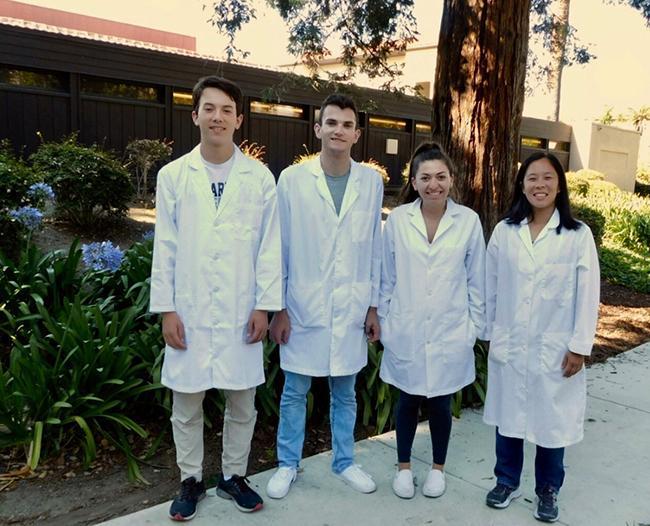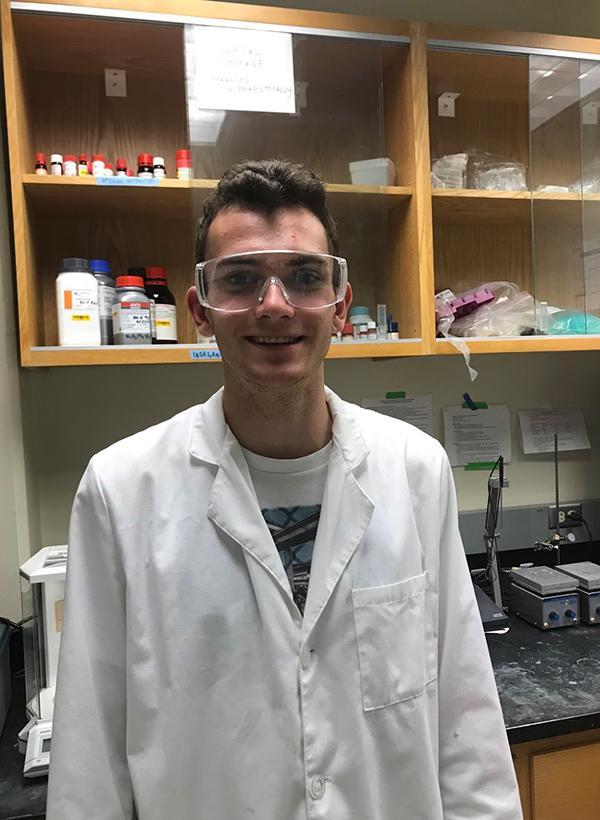Biochem Intern Uses Lasers to Study Drugs
Cameron Read ’21 joins the Grace Stokes lab for summer research

By Ally O'Connor '20

Biochemistry major and REAL scholar Cameron Read ’21 spent his summer as part of a research team studying how different lipid compositions impact drug absorption — critical information for the future of drug medication development.
The team, headed by Dr. Grace Stokes (Chemistry and Biochemistry), specifically focused on the absorption of two different antipsychotic medications, Clozapine and Chlorpromazine. While both drugs are typically used to treat psychiatric disorders, there is much more knowledge currently available regarding Chlorpromazine. Clozapine, on the other hand, is a newer compound whose interactions are less understood, and as a result more studies are ongoing. The purpose of their study is to compare and contrast how these two drugs interact with artificial membranes based on similarities and differences in their structures. They can then use this information to predict how a new drug with related chemical structure might behave in the human body. For the future, they hope to make more realistic artificial membranes that better mimic those found in the human body.
Read has thoroughly enjoyed his first year on the SCU campus and was thrilled to continue learning in the lab through the summer. He notes that without this funding opportunity, he would not be able to live on campus and work in a research lab full time. He also noted that before the internship, “a lot of my time was being spent studying science without thinking about how that information was discovered in the first place. I felt like I was privileged in a way to learn about other scientists’ work without thinking about the discovery process.” Read’s research is funded by the Gellert Foundation and administered through the REAL program.
About the REAL Program
The College of Arts and Sciences developed the REAL Program to allow students to discover their interests, gain a rich understanding of a particular field, discern their career goals, and explore future employment fields. We believe financial means should not determine whether or not a student can participate in internships, research, or creative works opportunities. Committed to providing paid experiential learning opportunities for students, the REAL program provides stipends up to $5,000 for undergraduate opportunities lasting up to 10 weeks over the summer. In 2018, its first year, the REAL Program distributed $550,000 to over 125 students.
For more information about the REAL Program, email real@scu.edu.